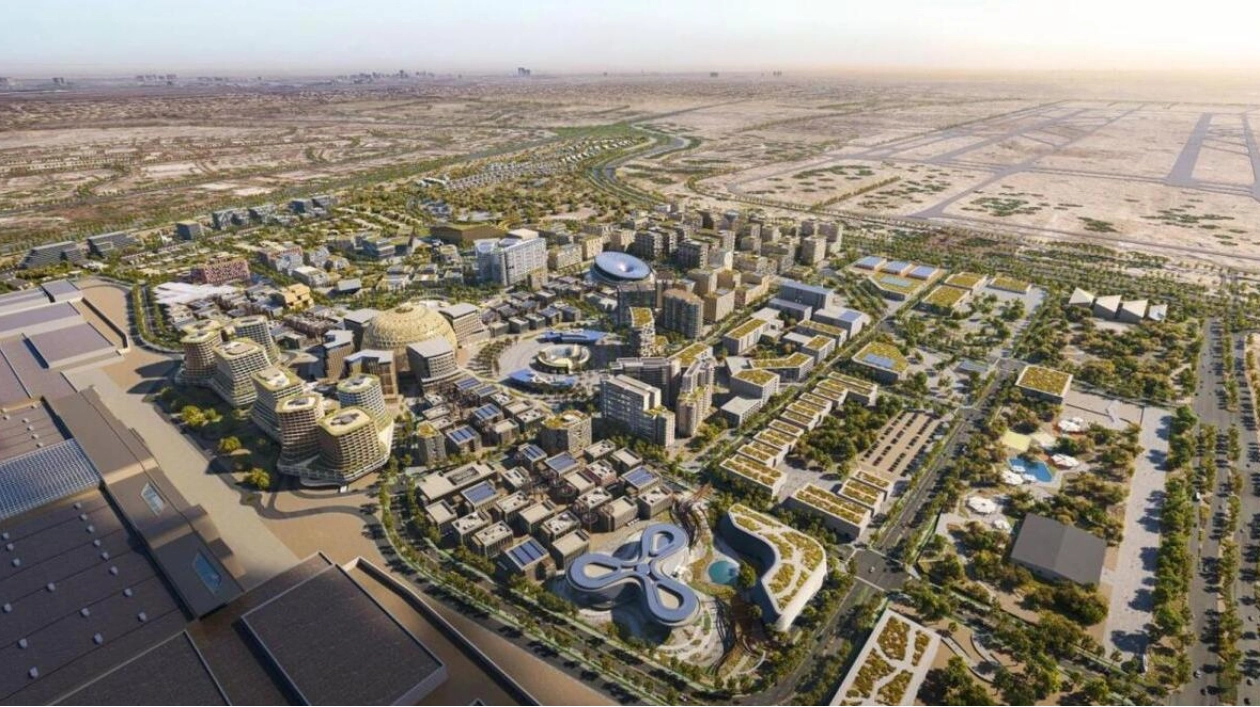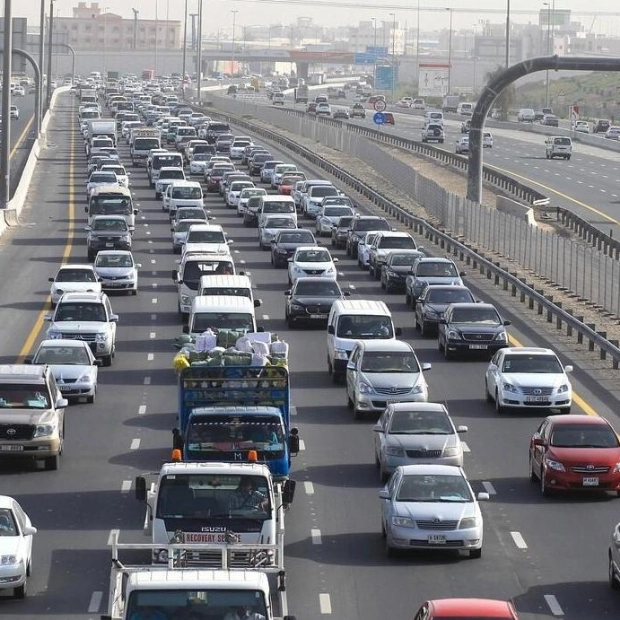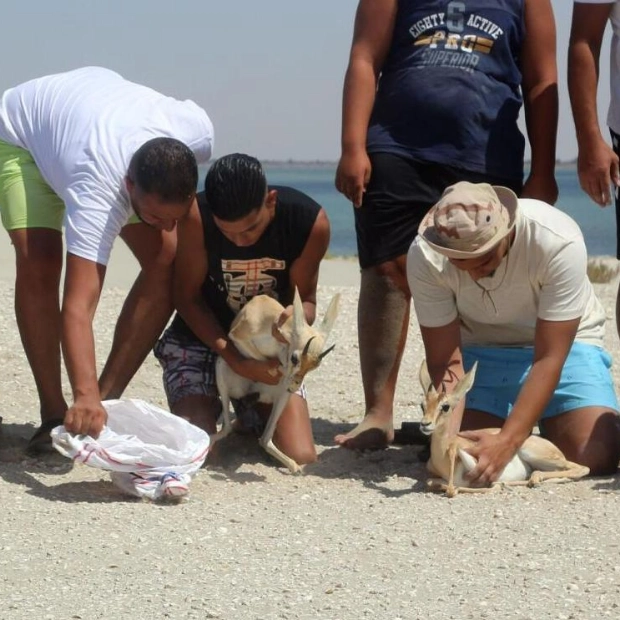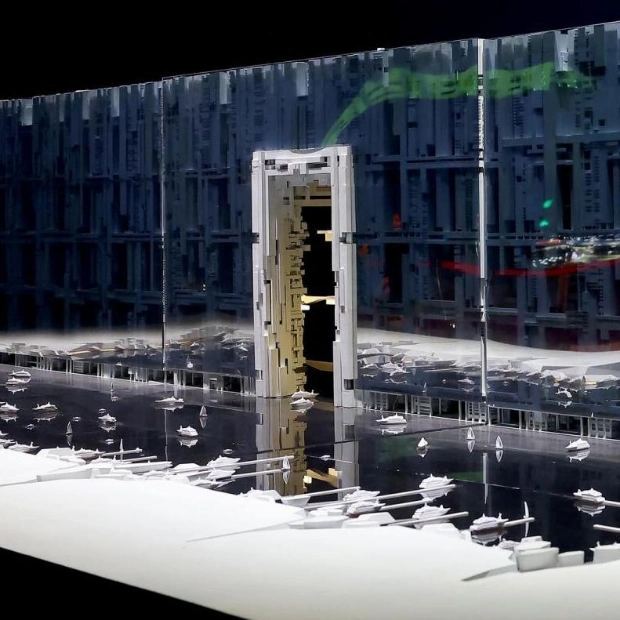Photos: Dubai Media Office
Expo City Dubai will not be entirely vehicle-free as initially planned. The updated master plan for the city, located in Dubai’s southern region, acknowledges the necessity for private, delivery, and emergency vehicles to access specific areas within the site, according to a senior official. Ahmed Al Khatib, chief development officer of Expo City Dubai, told Khaleej Times that navigating the city without cars will still be convenient and appealing. “The revised master plan emphasizes pedestrian priority, promotes public and soft mobility options, and offers ample parking facilities on the site’s outskirts.” Traffic calming measures and speed limits will be implemented to ensure safety in areas designated for vehicles. These measures typically involve narrowing roads and installing speed bumps.
Pedestrian-focused zones will dominate the main activity hubs, Al Khatib added. “Pedestrians will be given significant priority over vehicles, with minimal vehicle activity. Pedestrian pathways will include sidewalks along main roads, dedicated walking paths, and shaded walkways covering 70% of the routes for enhanced comfort.” A ‘Green Loop’ will serve as the primary pedestrian route, connecting large natural spaces with urban areas.
In October, Sheikh Mohammed bin Rashid, Vice-President and Prime Minister of the UAE and Ruler of Dubai, approved the new master plan for Expo City Dubai, which is being developed on the legacy site of Expo 2020 Dubai. Spanning 3.5 square kilometers, the city will accommodate over 35,000 residents and 40,000 professionals. According to the master plan brochure, more than 80% of the infrastructure and buildings from Expo 2020 will be preserved, including key landmarks like Terra, Alif, the Connect Conference Centre, Al Wasl, Rove – Expo City, the UAE Pavilion, and the Surreal water feature.
The new plan will be executed through a phased development approach, ensuring alignment with current and future market demands, Al Khatib explained. “Currently, we are progressing steadily with projects like Expo Valley, Mangrove Residences, and Sky Residences, with the first units expected to be delivered by Q1 2026.” Expo City has already attracted global businesses such as DP World, Emirates Group, Siemens Energy, and Terminus, with more companies expected to join soon. “Investment opportunities are available through plots and office spaces for lease, while the launch of Expo Business District will offer new prospects for the business community. The first residents are set to move in starting 2026, with the handover of properties at Expo Valley and Mangrove Residences.”
The city will feature multiple districts. Expo Hills will be a low-density residential community, while Expo Fields will promote healthy living with schools, sports fields, and performance areas. Expo Business will provide a campus-like environment for businesses. Downtown includes the iconic Al Wasl dome, the floating Terra Gardens, and Terra Tower, a mixed-use high-rise offering hospitality and office spaces, which will be the tallest building on site. A ‘forest’ district will integrate social amenities, educational spaces, and recreational areas within a natural setting.
Source link: https://www.khaleejtimes.com






